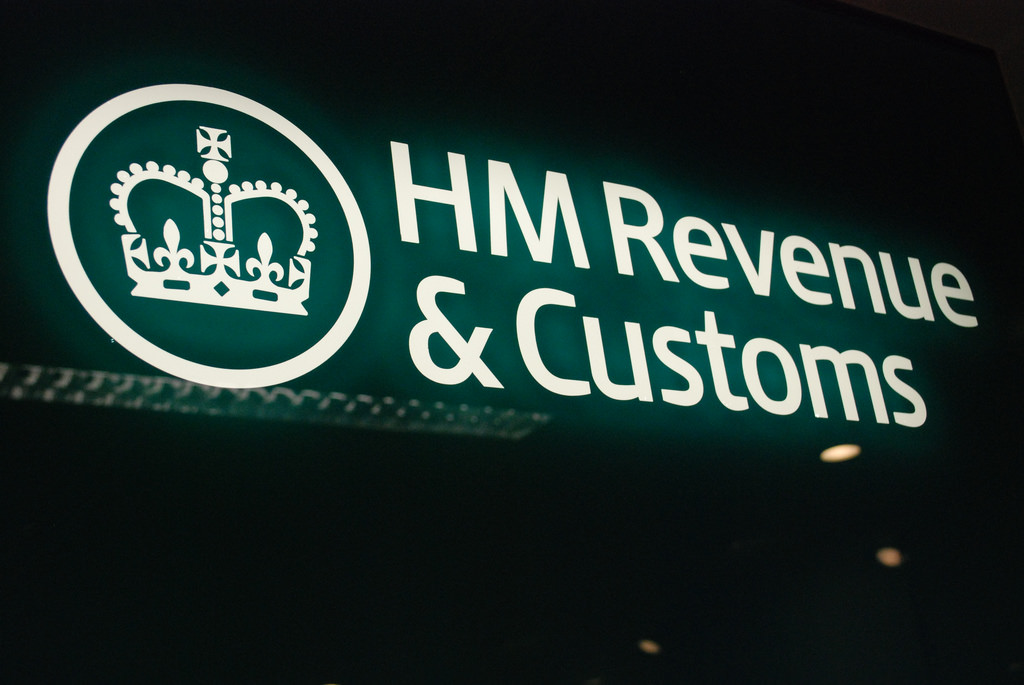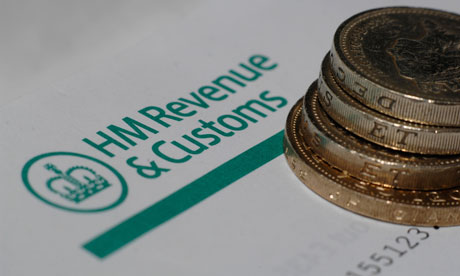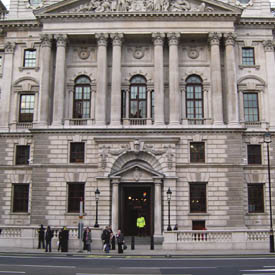RealNewsUK.com


The UK's Missing Tax Billions
In The Shade: The UK's hidden economy
A new report, written by veteran tax campaigner and chartered accountant Richard Murphy and published jointly by Tax Research UK, the Tax Justice Network and the Association for Accountancy and Business Affairs highlights the staggering scale of the UK's shadow economy.
Based on data on missing VAT published by both HM Revenue & Customs and the European Union the report estimates that in 2011/12 there were 100 billion of sales that weren't declared to the UK's tax authorities. That is one pound in every ten of sales in that year.
As a result the report estimates that £40 billion of VAT, income tax, national insurance and corporation tax was lost to the UK Exchequer on 2011/12.
By 2014/15 based on HM Treasury and Office for Budget Responsibility projections it is likely that this loss will increase to £47 billion.
As the report shows, this staggering loss of tax, enough to pay for the combined housing, environment and transport budgets for the UK or half of its education budget, does not happen by chance for a number of reasons.
The first is HM Revenue & Customs' refusal to correctly calculate the size of the UK tax gap, which as the report shows is drastically underestimated by them when it comes to tax evasion.
As a result HMRC has willingly reduced its resources, and especially its staff numbers, in the face of demands for government cuts when the result has been a staggering loss of tax revenue that could itself have helped close the deficit and prevent the austerity programmes this country has suffered.
But as the report highlights, there is also a collective willingness on the part of both HMRC and the UK company regulator, Companies House, to turn a blind eye to hundreds of thousands of companies that trade in the UK and which never submit their accounts to Companies House and never file tax returns with HMRC. The report estimates that there may be at least 400,000 companies a year that do neither and that those company directors ignoring their responsibilities in this way do so because they know they have almost no risk of being penalised. In effect these two authorities permit hundreds of thousands of companies to undertake tax fraud in the UK each year whilst turning a blind eye to what is happening.
Richard Murphy of Tax Research UK, the reports author said;
"What this report shows is that HMRC is not trying to collect the tax that is due in the UK. Rather than tackle the tax fraudsters who undermine all honest small business in this country our tax authority would rather impose cuts and sack its staff. The fact that they seem happy to collect tax returns from only just over half of all companies in the UK is the surest sign of that."
John Christensen, director of the Tax Justice Network said;
"This is all about political will. What we have is a government so intent on cutting what it considers red tape that we have ended up with rampant fraud in the UK. That imposes a cost on all of us, whether through higher tax bills for honest taxpayers or by cuts in services that many depend upon to make their lives possible."
Prof Prem Sikka of Essex University and the Association for Accountancy and Business Affairs said;
"Successive governments have abdicated their responsibility by failing to fully enforce tax and corporate laws. The inevitable outcome is loss of much needed tax revenues and public accountability. This is a national scandal and must be addressed by greater investment in manpower and technology."
Caroline Lucas MP, whose parliamentary questions on tax issues assisted the research, said;
"We hear time and again from the Government that they are serious about tackling tax dodging, yet this report is further evidence of their failure to take the necessary steps. It's high time the Treasury stopped doing its own dodging of the facts and instead created a level playing field, where all businesses are required to pay their fair share of tax."
The report makes concrete proposals for change including investment of more resources in both HM Revenue & Customs and Companies House. The resources of Companies House could, for example, be doubled by increasing the annual fee for having a company in the UK for 13 to 30 pounds.
More importantly the report also suggests that the UK' banks should now advise HMRC each year of those customers for whom they maintain accounts providing details of the address from which they trade and who the company owners are. That way HMRC will know which companies are definitely trading in the UK and so need to be chased for the tax returns and accounts they should be submitting and tax that they owe.

Summary
1. The UK probably lost £40 billion in tax in the year 2011/12 as a result of the unrecorded sales of UK businesses.
2. Based on HM Treasury Budget forecasts, this loss is likely to have increased to at least £47 billion in the current, 2014/15, tax year.
3. The estimate is based upon HMRC data for annual VAT losses and is consistent with EU data on the same subject and peer reviewed data on the size of the UK shadow economy.
4. This estimate means that approximately 1 in every 10 pounds of sales in the UK economy may not be recorded for tax purposes.
5. HMRC appear to only recognise about £10.5 billion of this loss in 2011/12 in its own tax gap estimates. This report does, therefore, suggest that in that year there were 29.5 billion of losses that HMRC did not recognise.
6. Of this sum this report suggests that maybe 7 to 8 billion of lost tax relates to the unrecorded income of the UK's self-employed people.
7. This leaves about £22 billion of loss that is attributable to UK limited companies.
8. Of this sum it is estimated that at least half or about £11 billion, may be due to the unrecorded income of the approximately 1.1 million companies that admit to HMRC that they trade in the UK at an average loss of about 10,000 each.
9. The remaining sum, or about another 11 billion, is suggested to be due to the activities of the U.K.'s 'shadow companies'.
10. This report suggests that there may be at least 400,000 companies that trade in the UK that do not report that fact to HMRC. In addition, these companies either do not file accounts or annual return forms as required by law with the UK Registrar of Companies, or if they do, they file dormant company accounts that do not reflect the fact that they are really trading.
11. The tax lost each to these shadow companies might, on average, be about £27,500, but that reflects VAT lost, corporation tax not paid and income tax and national insurance not declared on cash wages paid to staff. Each such company may, on average, have sales income of less than 75,000 a year, or a figure just below the annual VAT registration limit. The range of such incomes will, however, vary enormously, but evidence noted suggests that this level of turnover is entirely within the expected range of the incomes of smaller UK companies.
12. Research supporting this report suggests that there is strong evidence that a large number of shadow companies exist in the UK:
1. More than 300,000 companies are, on average, struck off the Register of Companies each year and few of these have submitted the accounts that are due to be filed by them before being struck off. The number of investigations by either Companies House or HMRC into these companies that are struck off appears to be very low;
2. More than 400,000 companies a year do, on average, fail to file annual return forms with the Registrar of Companies, including those struck off;
3. 340,000 sets of accounts due to the Registrar of Companies were probably not filed in 2012-13, including those due by companies struck off;
4. HMRC currently fail to request corporation tax returns from at least 650,000 companies each year that might be trading. Their checking on those companies that say they are not trading appears to be minimal;
5. Of the companies asked to submit corporation tax returns in 2011/12 more than 270,000 did not do so. Whilst these companies were penalised for not doing so almost none of those fines were paid;
6. Evidence from both the USA and from HMRC suggests that false declaration by smaller companies appears to be commonplace in at least 40% of all tax returns submitted. Based on this ratio, around 360,000 may not be declaring income they have actually earned each year;
7. Because only about 470 investigations of small company corporation tax returns were undertaken by HM Revenue & Customs in 2011-12, an effective rate of less than one for every 5,700 companies, the chance of a small company being discovered to have under-declared its income is remote;
8. Of the number of companies filing tax returns more than 500,000 said they did not trade and it seems few of these had their tax affairs investigated by HMRC;
9. Even using the most generous of calculations just 41% of all companies actually declared that they were trading in 2011-12 and fewer paid any corporation tax. It stretches credibility that 59% of all UK companies were really in existence to do nothing.
13. These numbers appear to converge on an estimate (and it can be no more than that) of about 400,000 companies a year having ample opportunity to trade in the UK and yet not declaring that fact and, most importantly, get away with it because of weak enforcement of regulations.
Recommendations
The attitude towards the enforcement of tax and company law regulation in the UK, especially amongst politicians, many of whom see it as an example of 'red tape' needs to change because tax cheating is undermining the viability of many small businesses in this country;
HMRC should be provided with all the resources it requires to tackle all tax evasion, which would include a considerably expanded tax investigation programme. This can only be achieved by investing more resources into the department and ending the programme of cuts and staff reductions that have been imposed upon it for a number of years;
Companies House needs additional resources to enforce the requirements of company law, which can be easily funded by increasing the current 13 a year charge for having a company to a more realistic 30 pounds;
Banks and other financial services providers (including accountants and lawyers) who have a duty in money laundering law to identify the ownership of the companies for whom they act should be required to report to HMRC and Companies House annually the identity of all the companies that they know have bank accounts or other indications of trade, with full bank account details being supplied. They should, at the same time be required to confirm the beneficial ownership of all companies for which they act, which they must know for money-laundering purposes, and provide the company's usual trading address at which it can be contacted. With this information HMRC and Companies House will then know which companies really trade in this country, and so will be able to demand tax, accounts and other data from them as required by law;
HMRC should be legally required to demand a corporation tax return from all companies where they have been advised that it may be trading;
HMRC should be given powers to approach banks and other financial service providers known to have had contact with a company if that company does not submit a corporation tax return within three months of the time allowed by law to require the provision of information, such as bank statements, that would let HMRC prepare estimated tax demands to be paid by the company in the absence of accounts and corporation tax returns;
The tax liabilities of any company that has failed to submit tax returns to HMRC should be made the personal liabilities of the directors of the company and all its owners who have more than 25 per cent of the share capital as well as the company itself. In this way the limited liability of companies would not permit deliberate tax abuse, as it does at present, because those responsible for that abuse would become personally liable to make payment of any sums they have defrauded;
The proposed public register of the beneficial ownership of companies in the UK should be verified for accuracy by Companies House using the data supplied to it by banks and other financial services providers to ensure that accurate information is published on that register.
Companies House should not be allowed to strike off a company until that company has supplied accounts covering all its periods of trading;
HMRC should be required to object to the striking off of any company whilst tax returns and tax liabilities owing by it remain outstanding;
HMRC and Companies House should be provided with the resources they need, including increased staffing, to enforce these laws since the cost of enforcement will be vastly less than the potential sums raised.
In the Shade: the UK's missing economy
Richard Murphy
May 19th 2014
www.TaxResearch.co.uk

Return to Front Page





